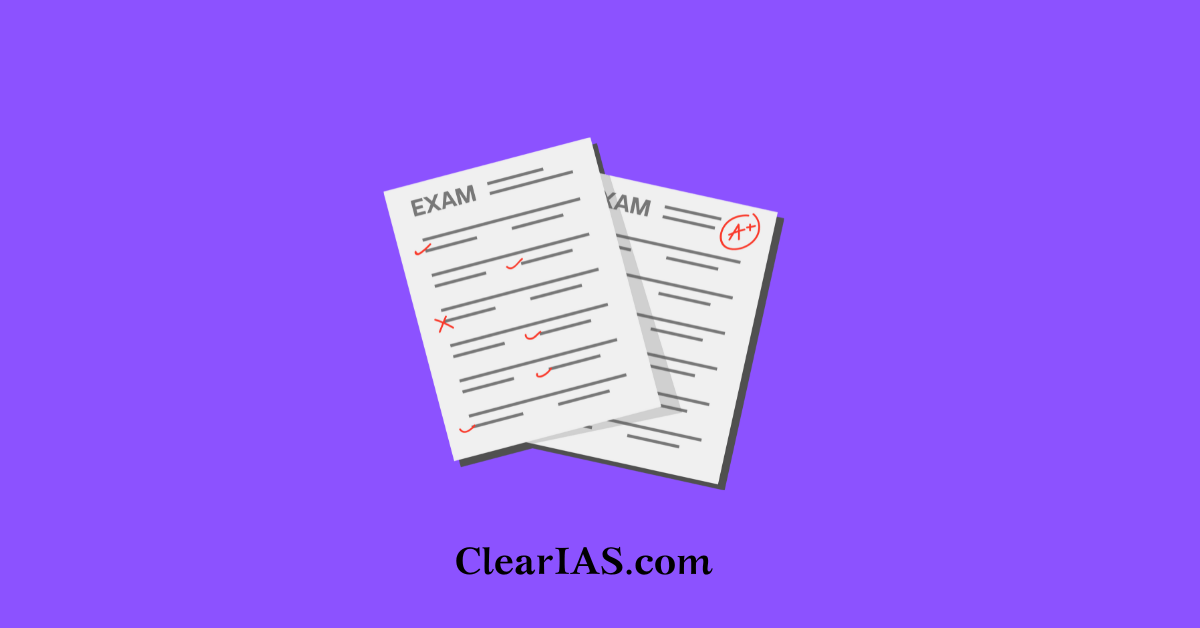
Read further to know more.
Question 1 : After the written examination, on what criterion is the answer books sent for evaluation? Is it on Roll no. basis or based on centre of examination? That is, will a particular examiner/set of examiners get to evaluate answer books only of a particular center or a particular group of Roll nos.?
Ans : Mixing of the answer books received from different venues is done before sending them for evaluation. Computer-based randomized fictitious code no. is given to each answer-book before evaluation.
Question 2 : Is it likely that my evaluated performance suffers because my answer books were evaluated by a ‘strict’ examiner, while another candidate benefits as his answer books were evaluated by a ‘liberal’ examiner?
Ans : The Paper Setter, who is an eminent person in his field, normally acts as the Head Examiner, and wherever the number of candidates in a particular subject is very large, the Commission appoints Additional Examiners for valuation of answer books. To achieve uniformity in valuation, where more than one Examiner is involved, the Commission arranges a meeting of the Head Examiner with the Additional Examiners after the Examination is over. At this stage, they discuss thoroughly the question paper, the appropriate answers and decide the standard of evaluation. To further bring about uniformity of assessment inter se the Examiners, the following procedure is undertaken:
The Head Examiner conducts a sample survey of answer books of each Additional Examiner to verify whether the uniform standards of evaluation evolved in the meeting of Examiners have actually been followed. Depending on the standard adopted by the Additional Examiner, the Head Examiner may confirm the awards without any change if the Examiner has correctly followed the standard decided upon, or may carry out upward / downward moderation as considered necessary to ensure maximum possible degree of uniformity in the evaluation process. Therefore, the aspect of inter examiner variation in standards of evaluation in a Paper affecting candidates’ performance is taken care of adequately.
Question 3 : Can I know the ‘question-wise’ marks awarded to me for a paper?
Answer : In a competitive examination, what is relevant is not the absolute performance of a candidate, but his/her relative performance that in fact determines whether the candidate qualifies and , if so, his/her position in the merit list. Accordingly, as already explained above, the evaluation process does not end after initial evaluation by an Examiner. Moderation, wherever applied, is on the total award initially given (the so-called ‘raw marks’) and not on question-wise basis. Therefore, once the evaluation process is complete, neither ‘raw marks’ nor ‘question-wise’ marks subsist. What subsists is the candidate’s total score in a paper awarded at the end of the evaluation process and this award is normally made available to the candidate in due course on the Commission’s website through a query-based application software.
Question 4 : If the overall marks of two or more candidates are equal, how is relative merit between such candidates decided?
The principles for tie-breaking in various exams conducted by UPSC is explained in the linked post. PS: All questions and answers are taken directly from UPSC FAQ section; you may browse the whole FAQ in UPSC website by clicking on the link.






Leave a Reply